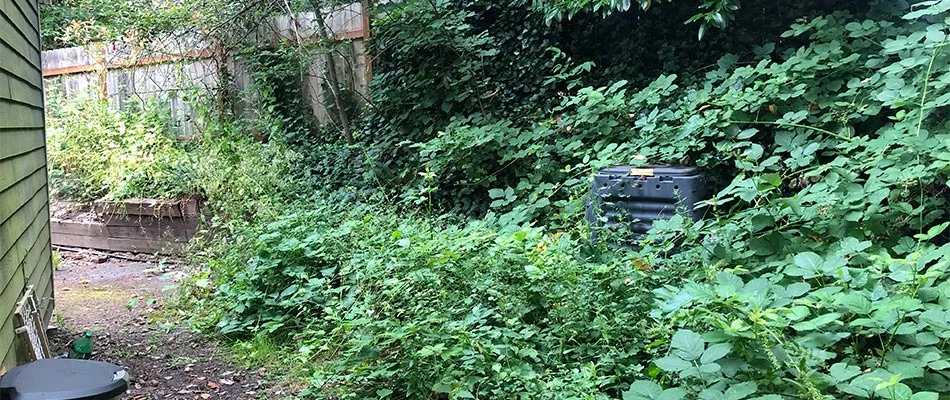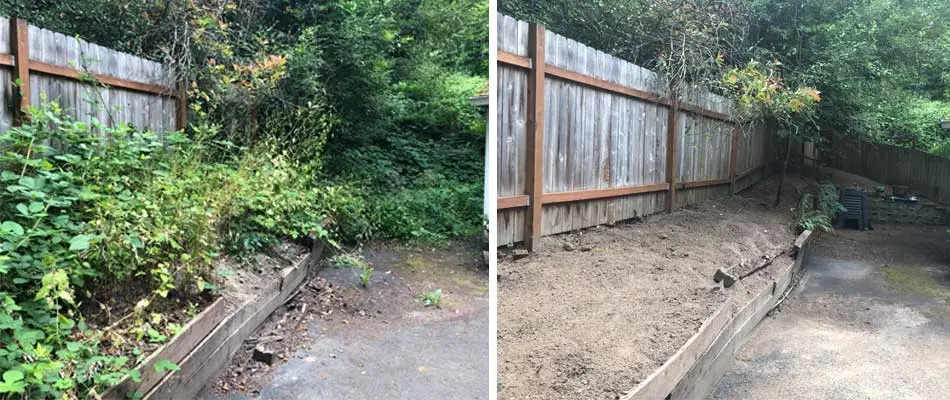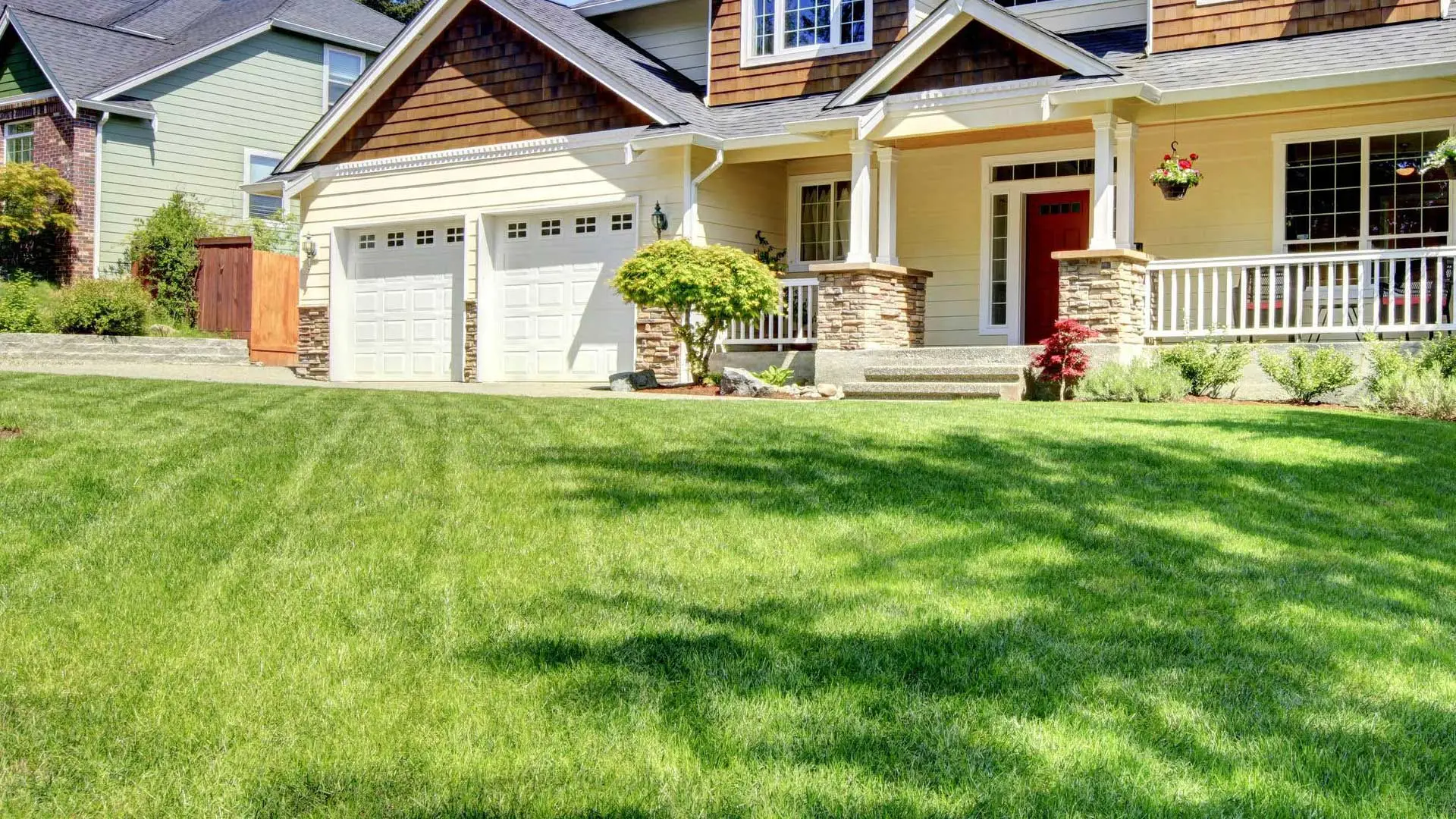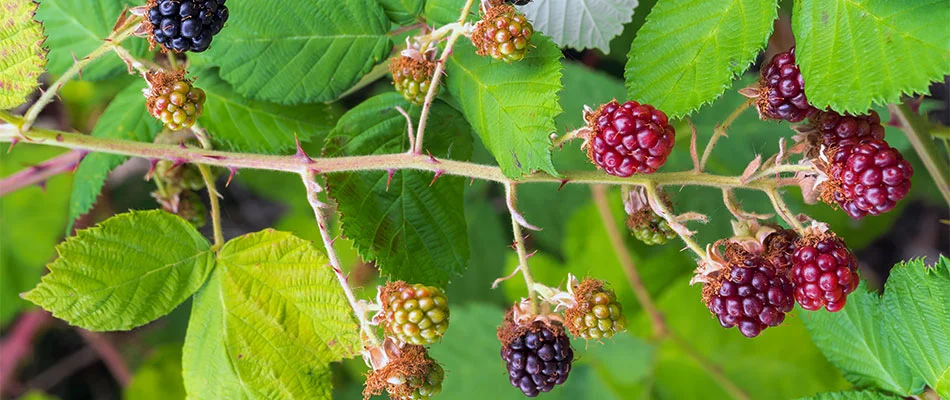Non-native blackberry plants have taken root and dealt serious damage to properties in our service area and beyond. We have introduced a treatment program that specifically targets these disruptive plants before they can lay waste to your yard.
It’s important to know exactly how invasive blackberry can destroy your yard in order to catch the problem before it gets out of hand. Below you will find a few key signs and symptoms along with descriptions of the damage that can be done if the problem is left alone to fester in Gresham, Troutdale, Happy Valley, and nearby areas.
Himalayan blackberry grows differently than native blackberry, causing sunlight blockage.
There is a distinction between native blackberry (trailing blackberries) and Himalayan blackberries. The native variety does not pose a threat in the same way as the Asian species.
The non-native type can grow thick patches throughout your beds and lawn and will eventually block sunlight and nutrients from reaching your plants. In extreme cases, the growths can completely kill off the plants in your bed, leaving you no choice but to start over from the soil up.
Non-native blackberry roots take up valuable bed space and can lead to soil erosion.

Any weed poses a threat to your existing plants because their root systems can take up valuable real estate in your beds and lawn. Weeds generally have shorter roots than other plants and become entangled with other roots. They grow easily with less water than most plants, which leads to rapid spreading throughout properties.
The shallow root systems also lend themselves to soil erosion problems, especially near running water or on slopes. As water washes over the soil, key nutrients are lost that would normally be reserved for your flowers, bushes, and ornamental plants.
Invasive blackberry plants damage the ecosystem and prevent proper tree growth.
In the grand scheme, these plants can do more than just choke out your planting beds and grass; they can do damage to local ecosystems. If you live along a river or lake, they can prevent larger trees from properly taking root, which leads to a negative ecological impact for animals and other nearby plants.
A study conducted by the University of Toronto found a decrease in bird species in areas afflicted by the rapid growth of invasive blackberry plants, which proves that the problem is not simply cosmetic.
If you think your lawn is being affected, or can’t tell if your blackberry bushes are the Himalayan variety, contact us for assistance.
Our team treats invasive blackberry problems with complete removal.

The only way to effectively eliminate the thorny, non-native blackberry problem is to completely remove the plants down to the root system. Simply tugging on the plants can often leave the root system intact, which will lead to regrowth.
We have experience with successful removal of the species, and we always revisit properties to ensure that the plants have been eradicated.
Call today with any non-native blackberry concerns!
We can manage blackberry problems in Gresham, Happy Valley, Troutdale, and the surrounding areas.
Call (971) 284-2035 today with any questions or concerns, and we would be happy to send our crew out to take a look.


 Reviews
Reviews
Thanks for your comment!
Thanks for your feedback! Your comments have been successfully submitted! Please note, all comments require admin approval prior to display.
Error submitting comment!
There is a problem with your comment, please see below.